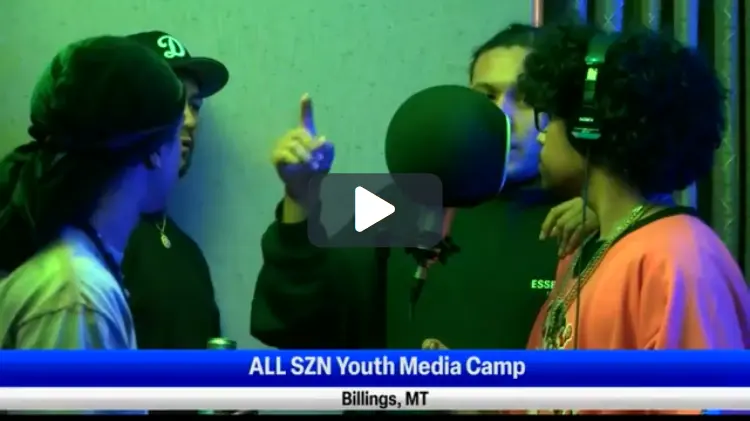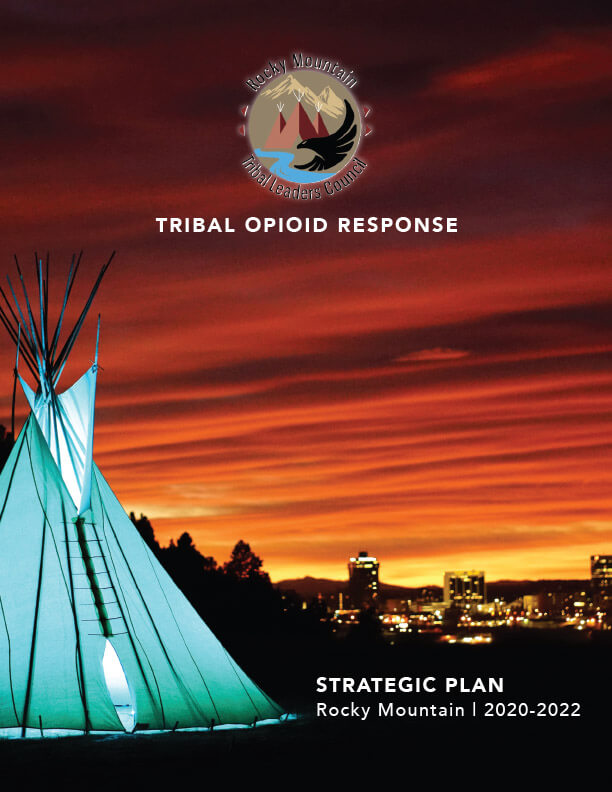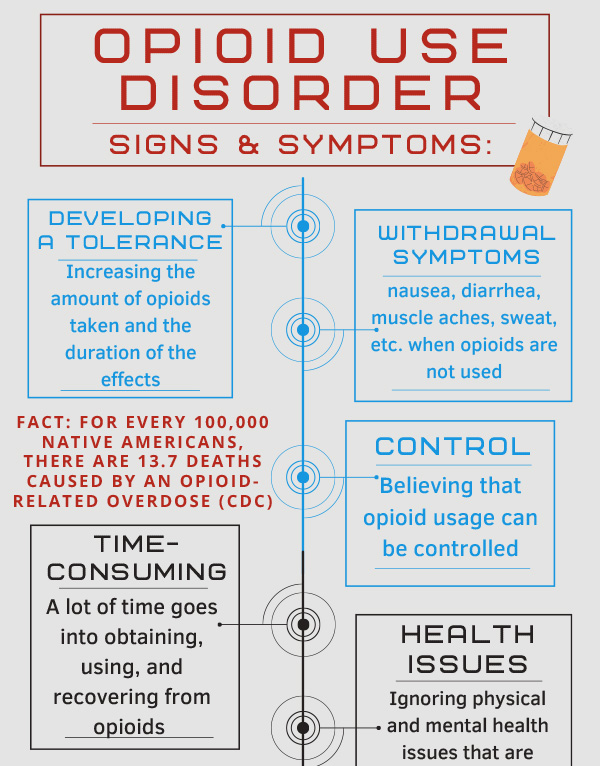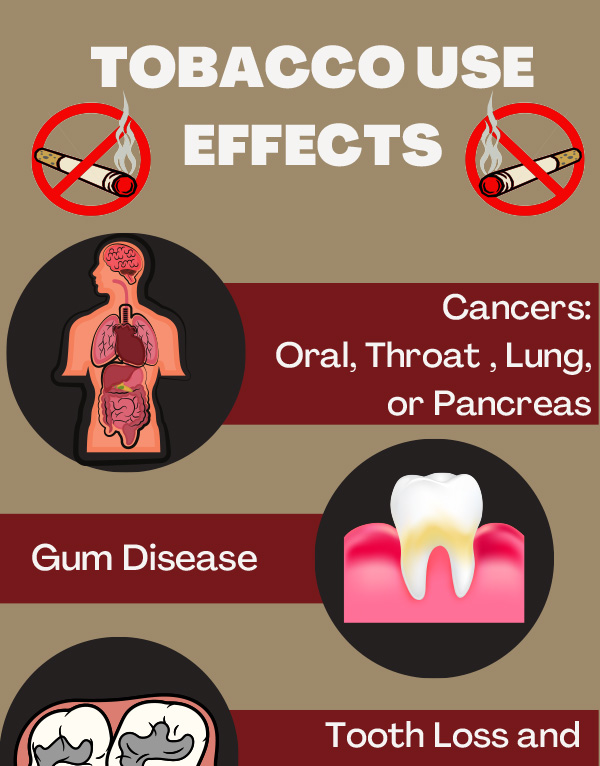- Tribal Opioid Response (TOR) project is a two-year SAMHSA funded grant awarded to Rocky Mountain Tribal Leaders Council to address the opioid crisis in Tribal and urban American Indian communities by increasing access to culturally appropriate and evidence-based treatment, including Medication Assisted Treatment (MAT) services for opioid use disorder (OUD) and other stimulants (cocaine and amphetamines). The focus populations for this grant funding are urban American Indians served through Urban Indian Health Centers and the Little Shell Tribe of Chippewa Indians of Montana.
- Collaborative partnerships with Urban Indian Health Centers and Little Shell Tribe address the unique needs of their individual communities. The project also partners with various community providers who work to serve the needs of the urban American Indian populations.
Tribal Opioid Response (TOR)
- Community Activities for prevention of opioid and stimulant use such as beading and quill work, social dances, and cultural teachings.
- Support for individuals in recovery through activities and programming.
- Partner with local community resources that provide services to people who use substances to support efforts towards harm reduction such as needle exchange/return, personal hygiene, and care.
- Provide speakers and presentations at Annual RMTLC Health Conference on the issues of addiction and substance use treatment and recovery.
- Provide statewide training to the major Urban Indian Health Center service areas including Good Road of Life trainings, Equine Assisted Wellness and Cultural Trauma and Resiliency Competency.
Activities Provided
|
|
In The News
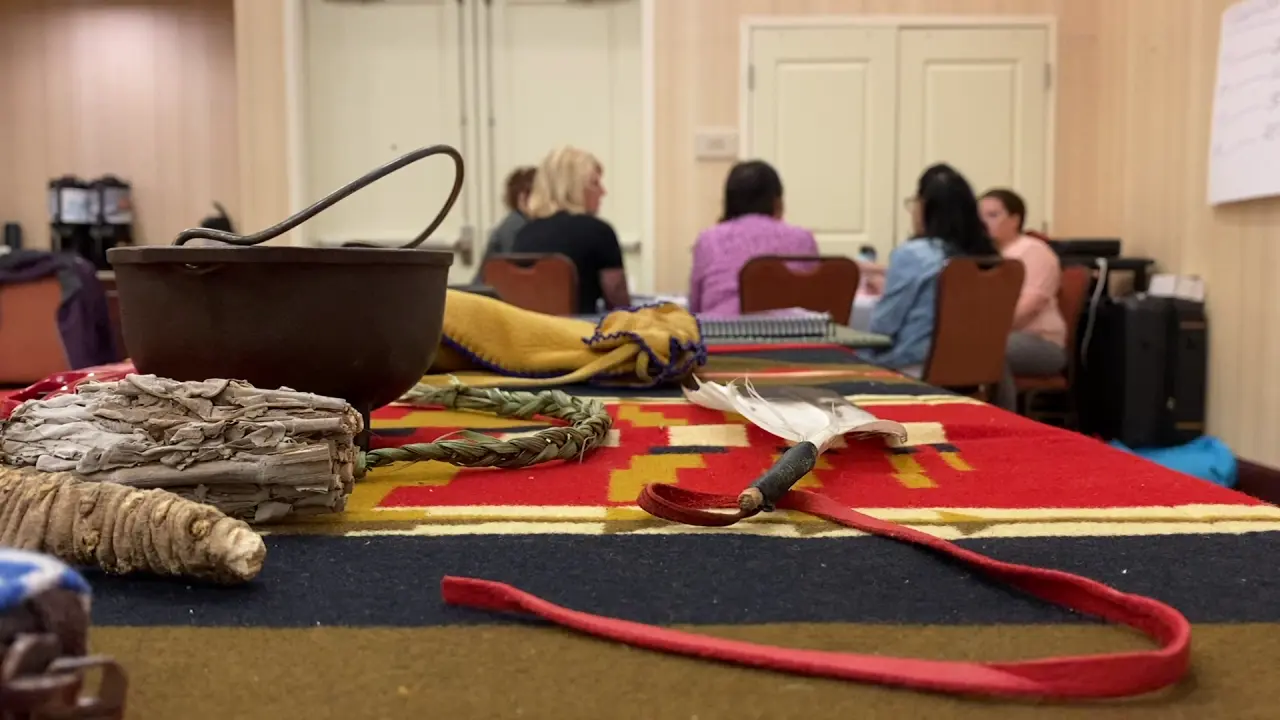 Good Road of Life Training in Great Falls.
Good Road of Life Training in Great Falls.
‘Native Pride’ program visits Great Falls.
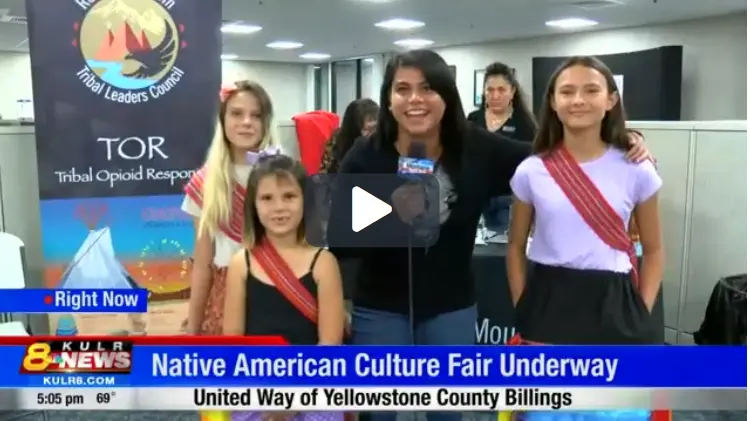 Native American Cultural Fair
Native American Cultural Fair
Native American Cultural Fair Continues to Emphasize Community Outreach and Preservation.
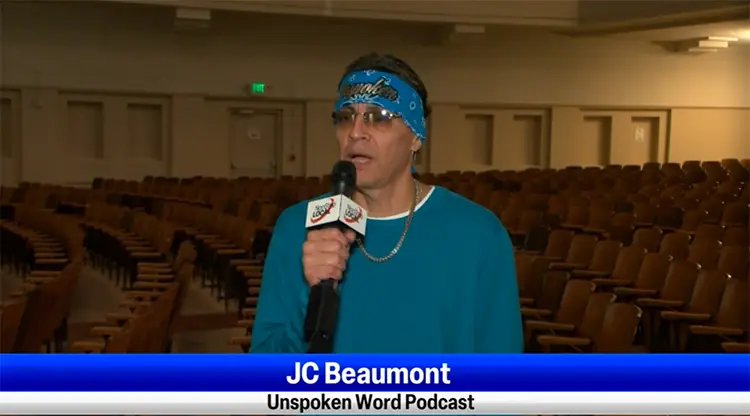 Unspoken Word Podcast
Unspoken Word Podcast
JC Beaumont explains the groups goal is to spread awareness of drug addiction and to provide resources to those in need.
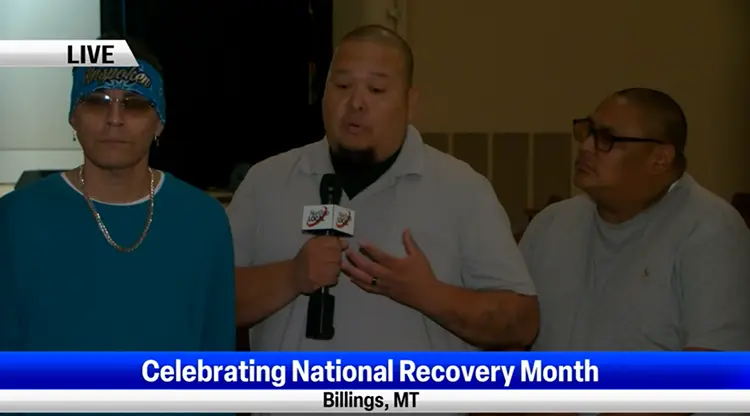 Unspoken Word Podcast
Unspoken Word Podcast
Members of the podcast Randy, Josiah, and JC celebrated National Recovery Month by sharing their experiences of recovery with the attending audience of inspiring others to move towards recovery.

Prevention / Recovery Activities + Services
- Provide Technical Assistance to other TOR programs and organizations on issues related to AI/AN opioid and stimulant use prevention programming.
- Culture is Prevention programming for use at activities, conferences, and other associated educational opportunities.
- Implement programming that targets to teens through activities, including a series of summer camps.
- Provide community activities to support prevention and recovery opportunities and engagement in local urban Indian areas.
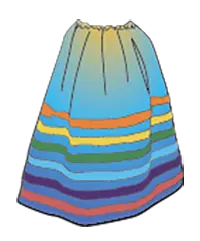
Activities Include:
- Ribbon Skirts
- Porcupine Quill Work
- Beading
- Dreamcatchers
- Smudging

Workforce
Development + Training
- Provide speakers and presentations for the RMTLC Annual Health Conference on the topics of opioid and stimulant use issues, and prevention and recovery of those issues.
- Offer trainings on the Psychology of Addiction and Recovery to Tribal substance use recovery programs in each of the reservation communities served by RMTLC.

Activities Include:
- Integrated Holistic PTSD
- Trauma Resiliency
- Good Road of Life
- Equine Assisted Wellness
- Peer Support

Harm Reduction Activities
- Provide fentanyl test strip kits, test strips and information to Urban Indian Health Clinics and community partners.
- Develop infographics on harm reduction and stigma to promote awareness and education for members of the community.
- Provide materials and support for organizations working with individuals living on the streets such as basic hygiene supplies, fentanyl testing materials and cold weather gear such as hats and mittens.
- Distribute Deterra medication disposal bags to Urban Indian Health Centers for distribution to communities.
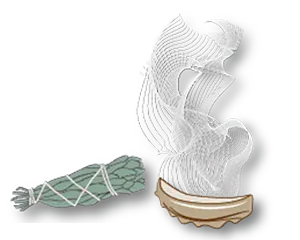
Activities Include:
- Fentanyl Strips
- Needle Disposal
- Stigma Education
- Deterra Drug Disposal

Partners
TOR works with the following primary partners:
-
- All Nations Health Center (Missoula),
- Indian Family Health Center (Great Falls),
- Little Shell Tribe of Chippewa Indians (Great Falls),
- Butte Native Wellness Center (Butte),
- Billings Urban Indian Health & Wellness Center (Billings).
- MSU Billings (Billings)
- Rocky Mountain College (Billings)
- Billings School District #2 (Billings)
- New Day Inc (Billings)
- Riverstone Health (Billings)
- Community Crisis Center (Billings)
Diversity
Each TOR partner is as unique as the area that it serves. All partners experience diverse populations of Urban Indians that flow through their facilities.

Education
TOR provides educational materials related to opioid issues for increased and awareness of overdose, harm reduction, how to get help, stigma and recovery. Community and partner surveys are conducted to understand the needs of the cities where partners are located. TOR works with the Rocky Mountain Tribal Epidemiology Center to obtain needed information to help steer activities and educational efforts.

Resources
The Tribal Opioid Response Strategic Plan Rocky Mountain Region 2020-2022 was produced by the Rocky Mountain Tribal Leaders Council (RMTLC) Tribal Opioid Response (TOR) project with funding from the Substance Abuse and Mental Health Services Administration (SAMHSA) Tribal Opioid Response grant (award no. 6H79TI083252).
Hotlines
Opioid Information and Prevention
- NCJTC_Preventing_Underage_Substance_Use_in_Tribal_Communities.pdf (cossapresources.org)
- Opioid Project Prevention, Treatment, and Recovery Resources – Extension Family & Human Development | Montana State University (msuextension.org)
- Opioids | truth (thetruth.com)
- Opioid Use Disorder | psychiatry.org
- What Are Opioids? (hopkinsmedicine.org)
- CDC – Assessing and Addressing Opioid Use Disorder
- DEA – Fentanyl
- CDC – Fentanyl Facts
Support and Harm Reduction
- Prescription Drug Dropbox Locations (mt.gov)
- Diagnostic Criteria
- Naloxone Training – National Drug Court Institute – NDCI.org
- Medications for Opioid Overdose, Withdrawal, & Addiction | National Institute on Drug Abuse (NIDA)
- Fact Sheet: Fentanyl Testing to Prevent Overdose – Information for People Who Use Drugs and Healthcare Providers
Recovery and Nutrition
- Food For Recovery Infographic
- The Importance of Nutrition and Substance Abuse Recovery | The Blackberry Center of Central Florida
- Nutrition to Help Your Body Heal in Addiction Recovery (gatewayfoundation.org)
- Nutrition in Recovery from Addiction | Psychology Today
- Intervention Types & Programs: Do They Work? (americanaddictioncenters.org)
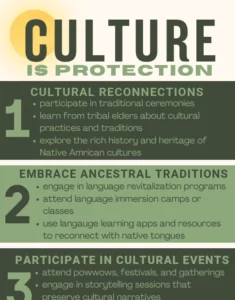
Culture is Protection
Participate in traditional ceremonies, learn from tribal elders, explore the rich history of Native American cultures.
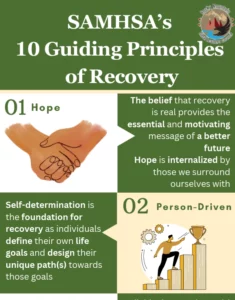
SAMSHA’s 10 Guiding Principles of Recovery
The belief that recovery is real provides the essential message of a better future.
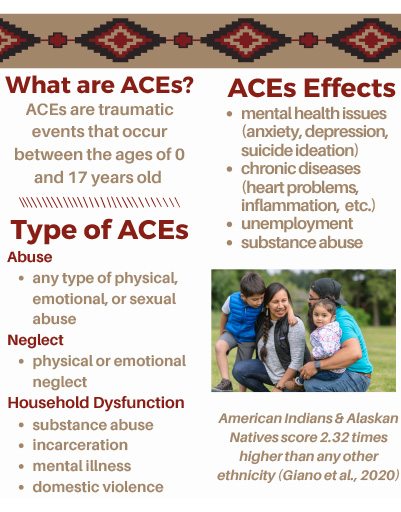 What are ACEs?
What are ACEs?
ACEs are traumatic events that occur between the ages of 0 and 17 years old
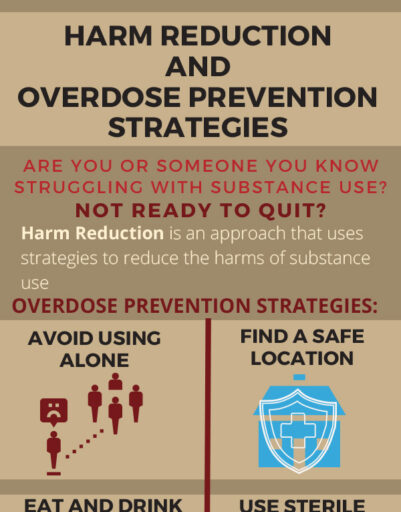 Harm, Reduction, and Overdose Prevention strategies
Harm, Reduction, and Overdose Prevention strategies
Harm Reduction is a person-centered approach that uses strategies to reduce the harms of substance use.
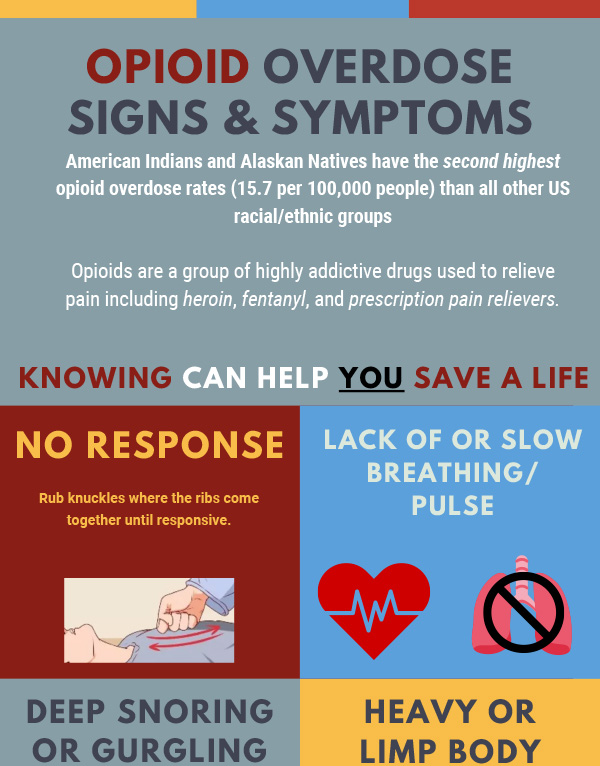 Opioid Overdose Signs & Symptoms
Opioid Overdose Signs & Symptoms
Did you know American Indians and Alaskan Natives have the second highest opioid overdose rates (15.7 per 100,000 people) than all other US racial/ethnic groups?
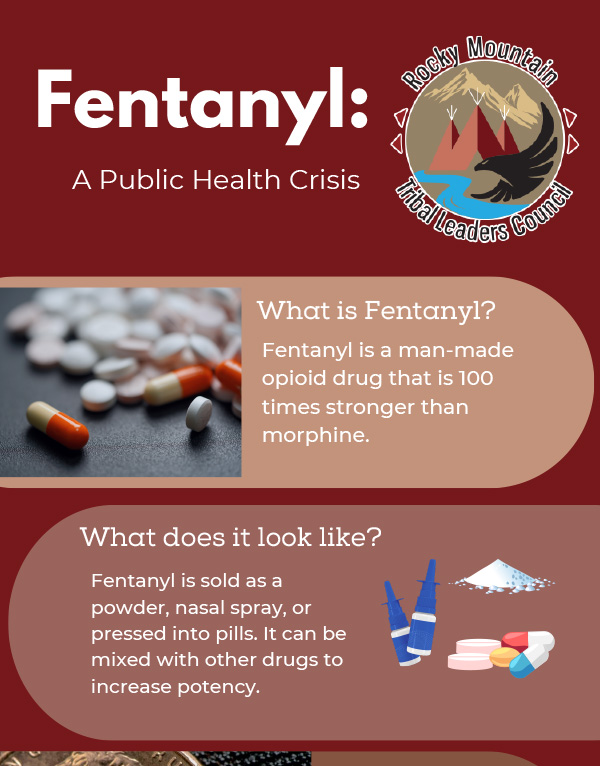 Fentanyl: A Public Health Crisis
Fentanyl: A Public Health Crisis
Just 2 milligrams can bea lethal dose and without test strips you do not know if another drug has Fentanyl in it or how much it may have.
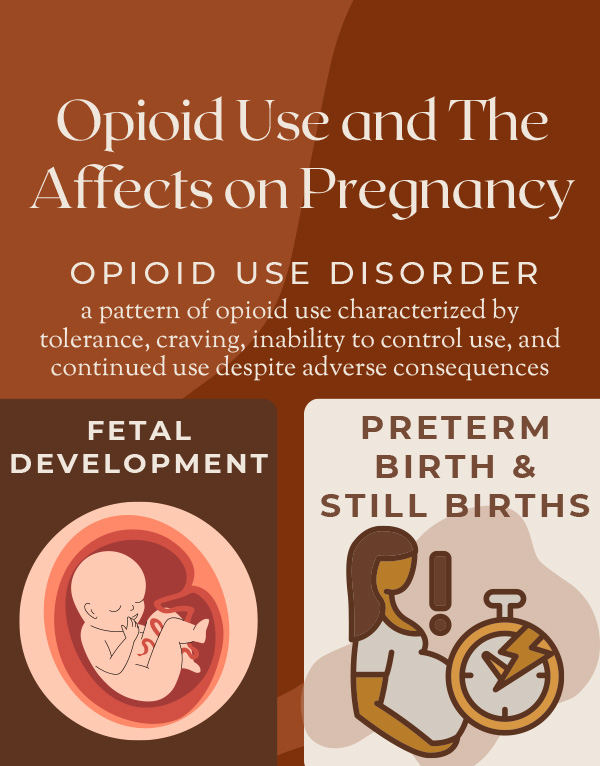 Opioid Use and The Affects on Pregnancy
Opioid Use and The Affects on Pregnancy
A class of drugs that speeds up signals between the brain and body.
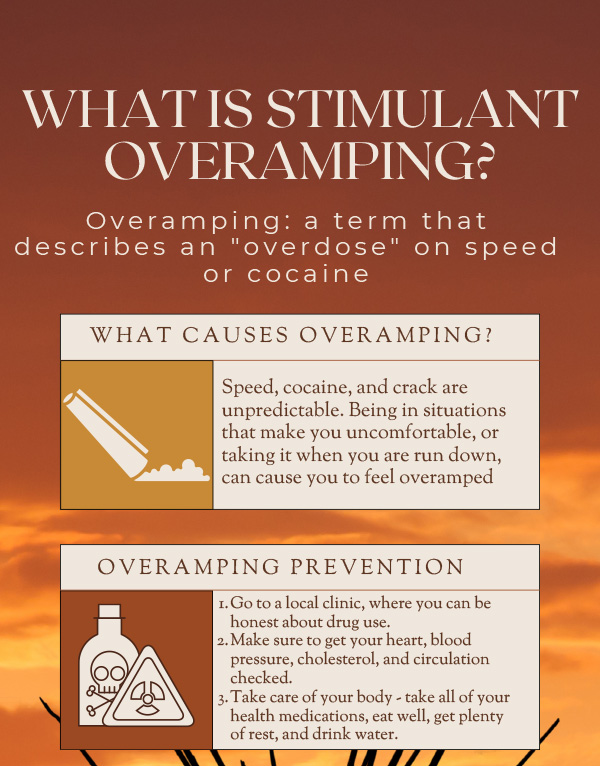 Stimulant Overamping
Stimulant Overamping
Overamping: a term that describes an “overdose” on speed or cocaine.
DETERRA
Prescription medication disposal product from safe removal from a home of prescription medications.
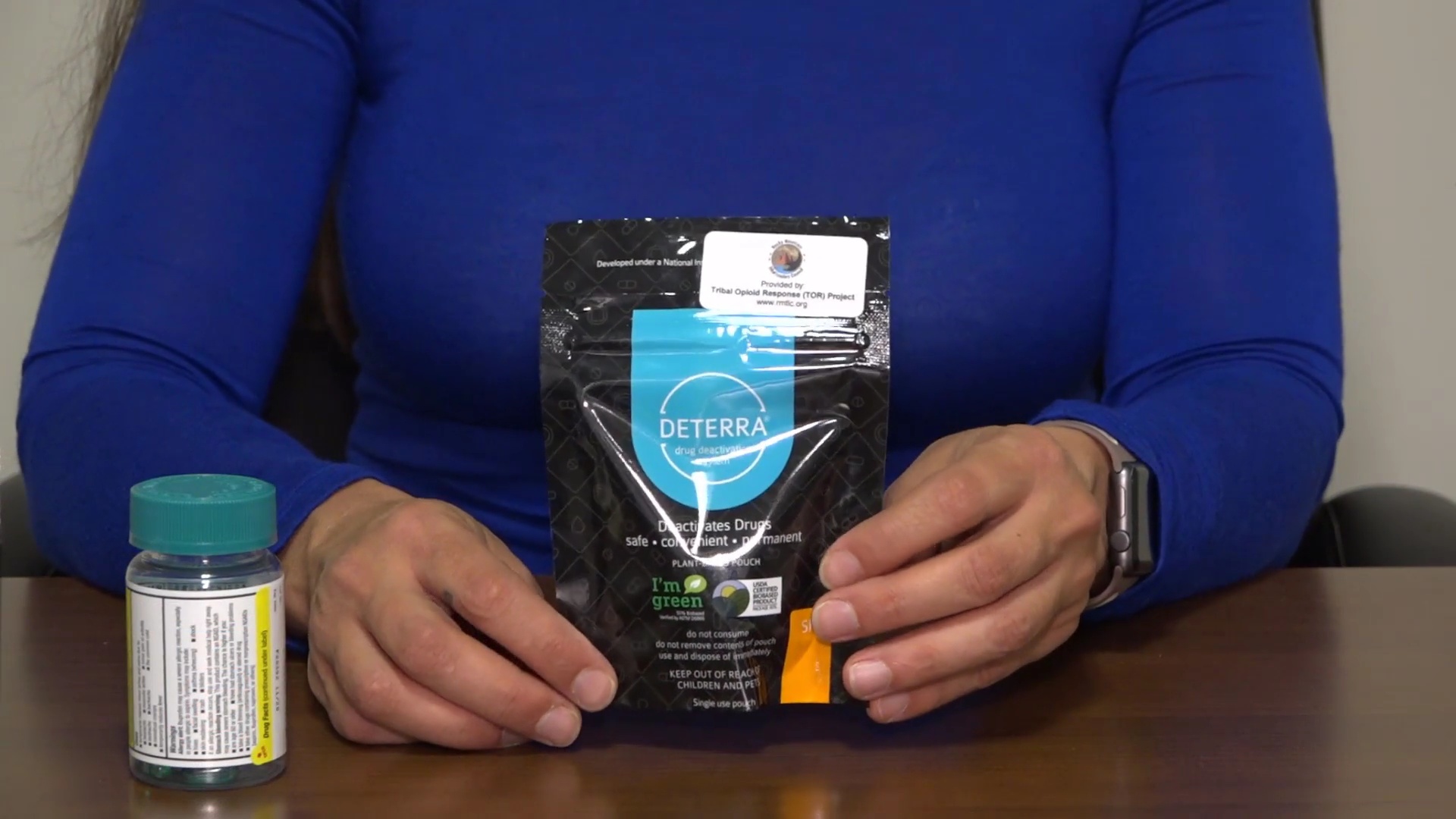
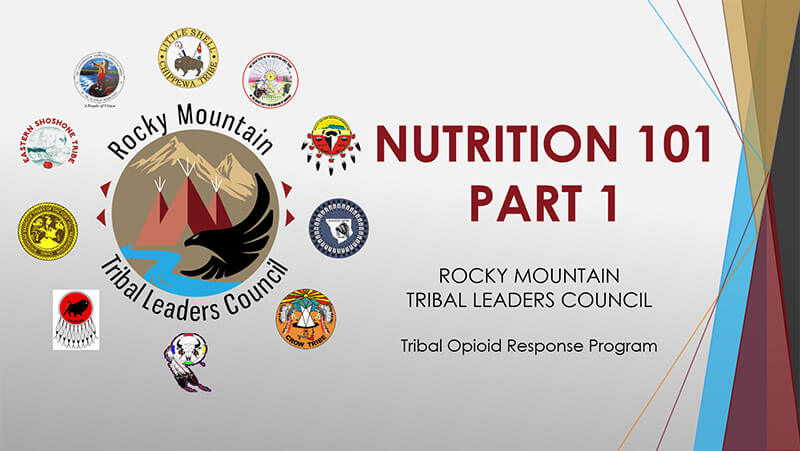 Nutrition 101: Part 1
Nutrition 101: Part 1
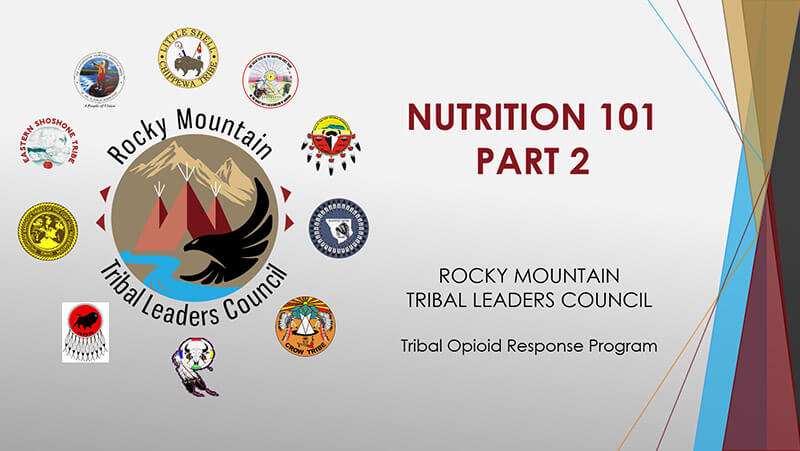 Nutrition 101: Part 2
Nutrition 101: Part 2
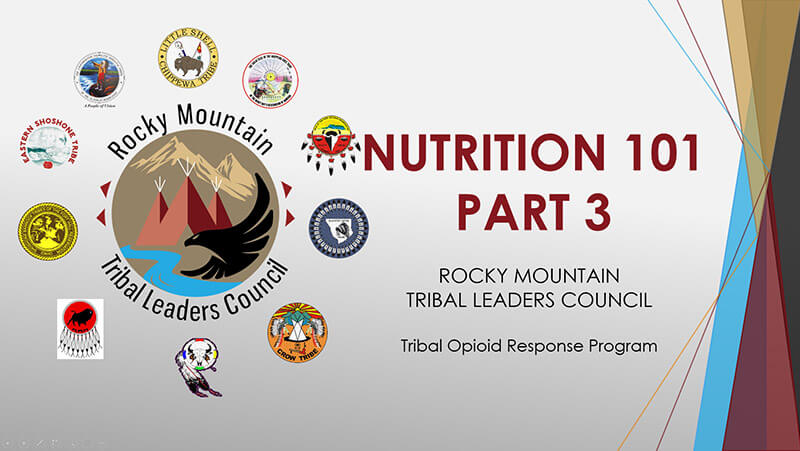 Nutrition 101: Part 3
Nutrition 101: Part 3
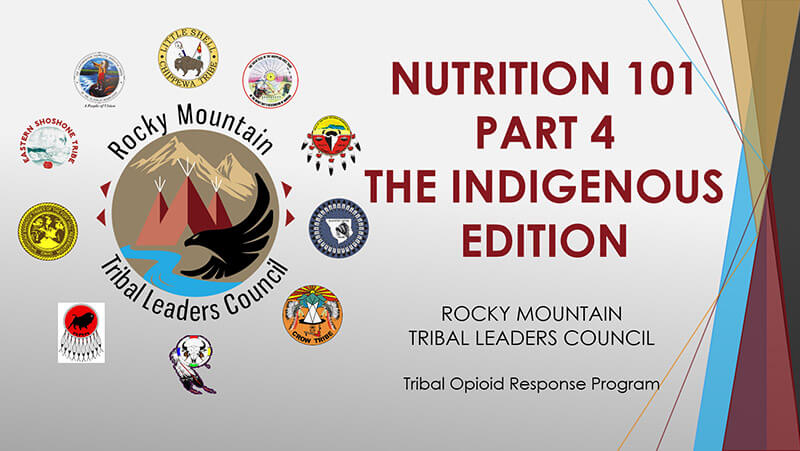 Nutrition 101: Part 4
Nutrition 101: Part 4


